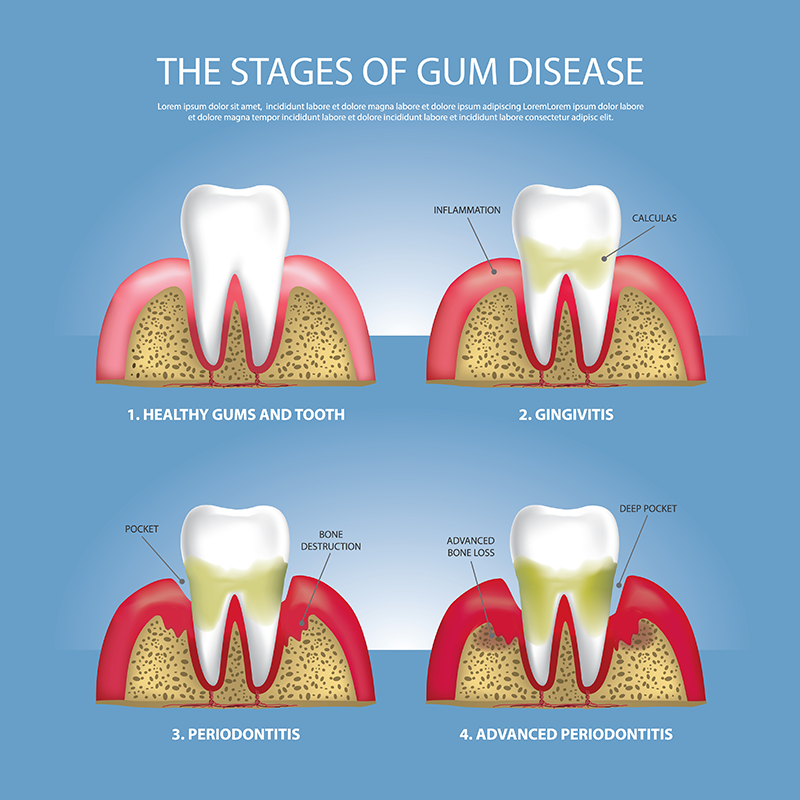Periodontal Disease | Gum Treatment
What Is Gum Disease
Periodontal disease, more commonly referred to as gum disease, is an oral health issue that affects your gums, your jawbone, your teeth, and even your whole-body health. Periodontal disease occurs when plaque and bacteria build up in your mouth, causing your gums to become irritated. The irritation triggers an inflammatory response, which then causes your gums to swell. Eventually, your gums recede, and your teeth become loose. You may even suffer tooth loss and serious health issues such as diabetes and heart disease. If you have developed periodontal disease, Harry Albers DDS can help.

 One of the main causes of periodontal disease is poor oral hygiene. The ADA recommends brushing twice daily, flossing daily, and having your teeth professionally cleaned and examined twice a year. Ignoring your oral hygiene can lead to a buildup of plaque and bacteria in your mouth. These substances, then irritate your gums, which lead to inflammation.
One of the main causes of periodontal disease is poor oral hygiene. The ADA recommends brushing twice daily, flossing daily, and having your teeth professionally cleaned and examined twice a year. Ignoring your oral hygiene can lead to a buildup of plaque and bacteria in your mouth. These substances, then irritate your gums, which lead to inflammation.